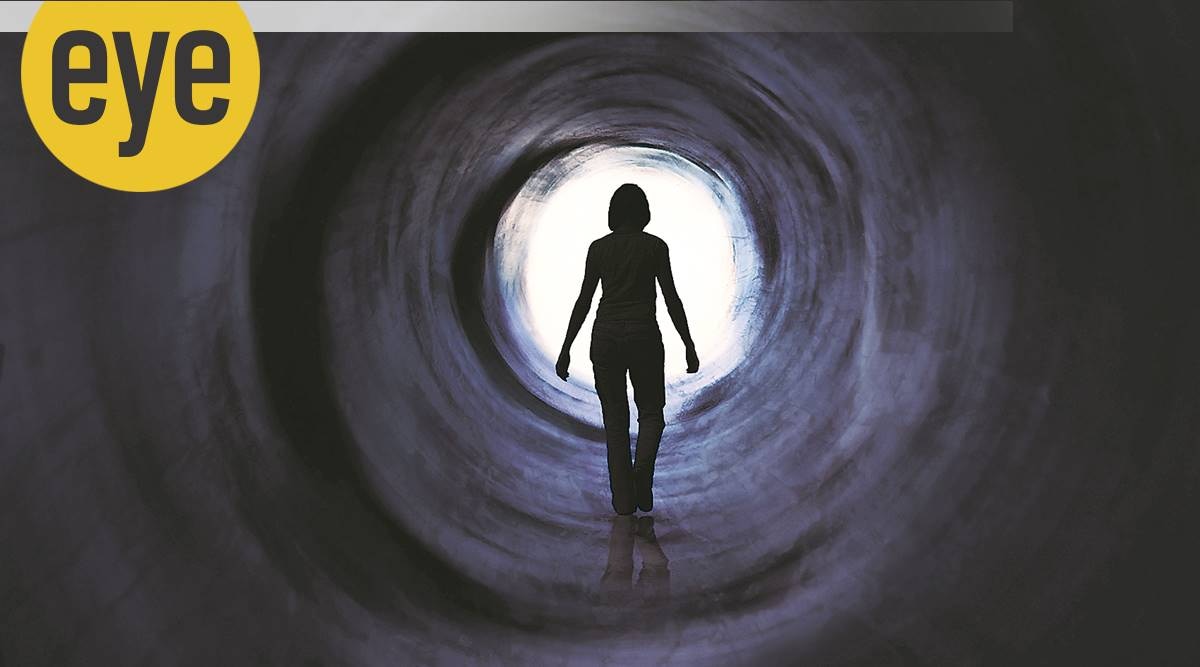We are the Light in this Dark Tunnel

Human beings are not broken, the structures that are supposed to care and provide for us are shattered
I’m done with this! I don’t want this anymore,” a sentiment expressed by 23-year-old Rehaan, who’d lost his brother to COVID-19, echoed what all of us are experiencing as a nation. There’s rage towards the injustice of the losses, the indignity of the deaths that are etched into our memories, and despair at the enormity of the disaster.
While I acknowledge the pain, suffering, grief, confusion, hopelessness and helplessness, I resist pathologising people with ideas of “mass trauma”, “mental illness epidemic”, and diagnoses like PTSD (post-traumatic stress disorder). These ideas are problematic as they assume we are broken when it’s the rickety structures, which are supposed to take care of us and provide for us, that are shattered. We are hearing a lot about “vicarious trauma” that frontline workers are subjected to but isn’t it a justifiable response to challenging, desperate situations and not symptoms of unwellness? We’re trying to do the best we can to survive the cruelty and neglect of the systems of power that have let us down. Let’s not add to the indignity and slap human suffering with dehumanising diagnoses and psychological or psychiatric programmes to fix them.
As we start to put the broken pieces together, our journey of recovery is not going to be easy. It will be a messy and imperfect trek ahead as we continue grappling with our losses, hit dead-ends and drag ourselves forward. Sameera lost her mother to COVID-19 and did not even get to say goodbye to her. She shared with me, “How do I grieve all alone? Who do I hold on to when anguish rips me apart?” Throughout history, grieving has been about a community coming together to support each other, but COVID-19 has robbed us of that and isolated us at a time when we need each other the most.
What steps to take
I’m heartbroken, but I’m holding on to the broken parts with hope as this is the only way I’ve learnt to resist despair. Hope is not optimism, which reeks of arrogant certainty, and neither is it “positivity” culture which is superficial at its best and cruel at its worst. Hope is in the small steps we take every day. Like 15-year-old Shahid, who’s volunteering with an NGO which responds to medical emergencies, told me, “It is way better than watching Netflix as I know it is making a difference in somebody’s life.” As we chart out our steps, I would like you to reflect on this — it is our action that defines how we feel and not how we feel which determines our action.
What you stand for
This last year has also made us realise what really matters to us, what we value and what we hold precious. I have had rich conversations with children, young people and families and some things I get to hear of often are things like “community”, “connections”, “being healthy”, “doing something meaningful and not just for money”, “sustainability”, “spirituality”, “finding joy in little things”, “contributing to society in some way or the other”. What ethics do you want to align your life with?
What you stand against
When we stand up for what’s precious to us, we also have to stand up to the forces that come in the way of these values. We need a special torch of resistance to help us find light in the darkest times. We need to stand up to the pressures and expectations that the neoliberal society put on young people, the culture of hustle, the capitalist culture that has put our planet through the climate crisis, Islamophobia, human-right violations, child abuse, gender-based violence, transphobia, homophobia, casteism, classism, etc. I resonate with political activist Angela Davis’s quote, “I’m no longer accepting the things I cannot change, I’m changing the things I cannot accept.” What are you not accepting anymore?
Who you stand with
The problematic notion of “survival of the fittest”, misattributed to Charles Darwin (instead of Herbert Spencer in The Principles of Biology, 1864), makes us feel the only way to survive the pandemic is by watching out for ourselves — a scary dystopia with a slippery slope of survival, and the only way to reach the top is by elbowing others out. In reality, more than “survival of the fittest”, it’s the “survival of the kindest” that has helped us through the second wave, and it is our only hope for the future. The same Mom’s WhatsApp group that I used to roll my eyes at earlier were spectacular in small acts of care towards each other, going all out to extend their resources in every possible way to strangers. We have to stand up to forces that divide us and work together to build a community of concern at our schools, colleges, spiritual spaces, workplaces so as to slowly restore ourselves. What’s going to heal you? What will be the collective that will sustain and help you to shoulder each other up?
What will help you endure and sustain
Sometimes, when we are navigating hardships, it’s meaningful to reflect on what gives our life a sense of purpose, beyond our own selves. It might be a big, life-changing, earth-shattering project that’s going to change our planet’s trajectory, or something really small, a tiny, micro-step. Write it down boldly somewhere or say it aloud to yourself.
A year of suffering has wreaked turmoil in our lives, and we don’t need somebody telling us there’s light at the end of the tunnel. We have to be the light in the tunnel, no matter how fragile and flickering, and have faith that we’ll make it. Make hope a daily practice and take the step; your North Star is waiting to be reclaimed by you.
Source: Read Full Article


